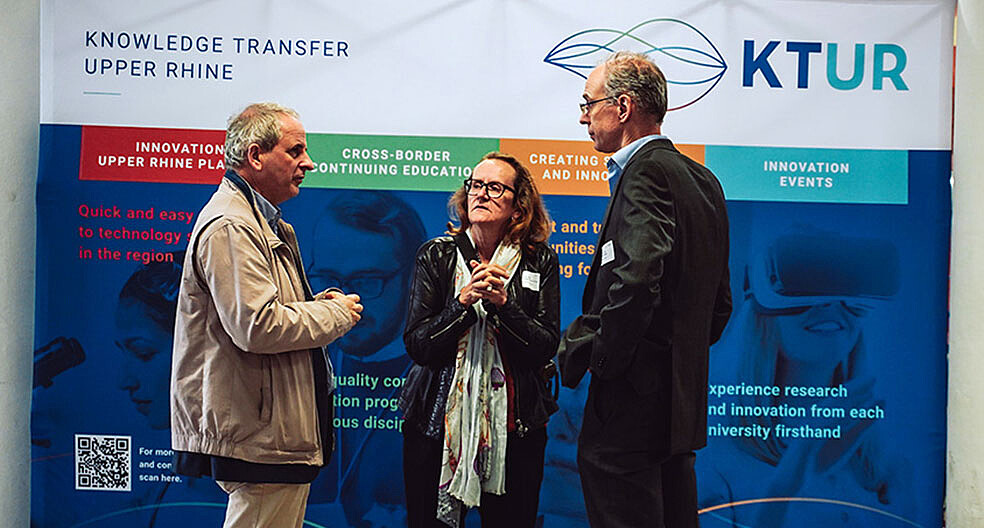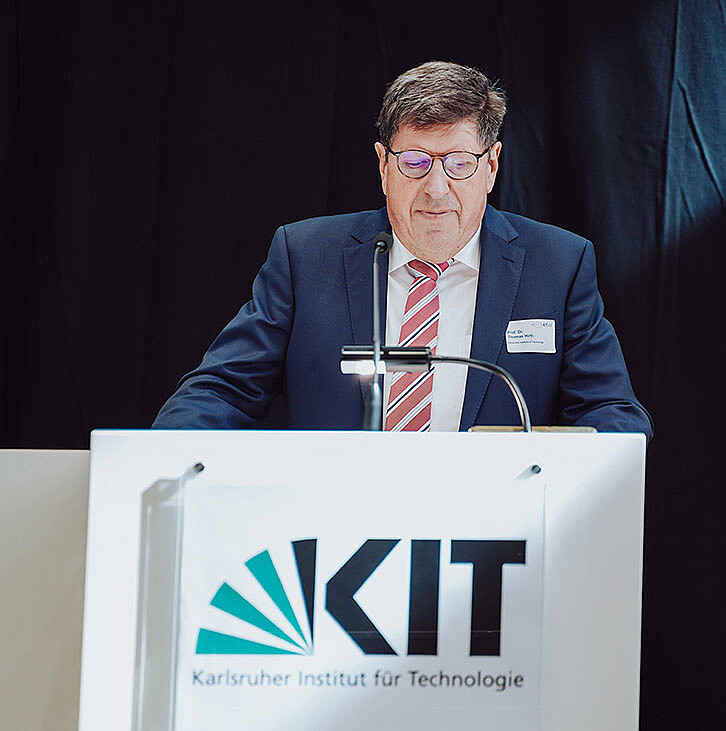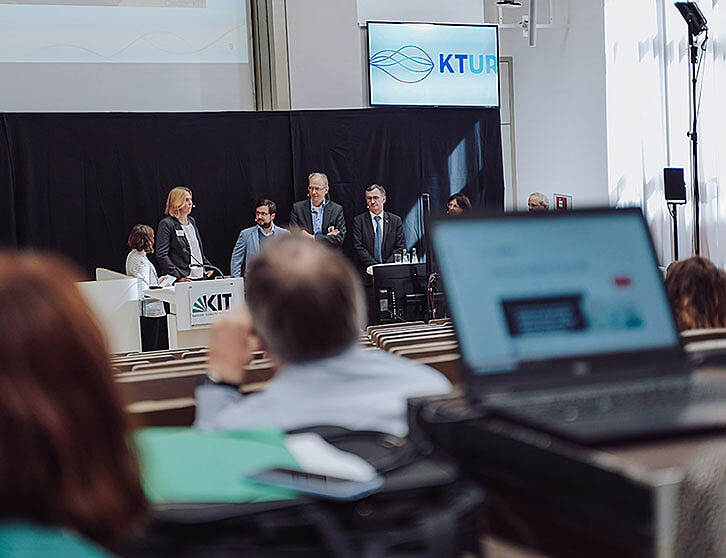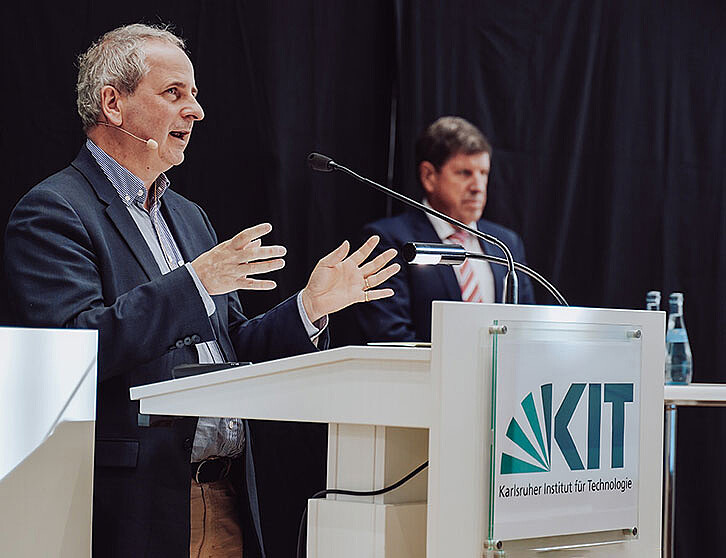Published on September 30, 2022
KTUR project ends – successful balance after three-year funding period

New structures for cooperation, cross-border offers for start-ups and a long-term network for knowledge and technology transfer in the tri-border region of Germany, France and Switzerland: this is the successful outcome of KTUR. The twelve university partners under the leadership of the Karlsruhe Institute of Technology (KIT) set the course for this together with numerous regional companies and business associations.

A cross-border network connecting public research and industry
KTUR focused on close cooperation in research and transfer as well as cross-border start-ups. The pilot project started in October 2019 with the mission to reduce existing barriers in order to significantly simplify and strengthen contact and project initiation between universities and companies in the Upper Rhine region.
Prof. Dr. Thomas Hirth, Vice President for Transfer and International Affairs at KIT, opened the event. In his welcoming address, he emphasized the necessity of a cross-border network in which participants from research and industry can jointly address societal challenges such as the energy transition or climate change and initiate corresponding innovation projects. Mr. Hirth’s welcoming words were followed by three speeches highlighting the perspectives of France, Germany and Switzerland on the cooperation opportunities and the innovation potential of the Upper Rhine region.

New trinational offers in the field of knowledge and technology transfer
In a subsequent panel discussion, the leaders of the various work packages discussed how KTUR has helped to bring research and industry closer together and to establish a trinational innovation network in the Upper Rhine region. All six panelists emphasized that without KTUR, many exciting projects could not have been realized and that the project had led to a great spirit of optimism among the innovation actors in the region. You could clearly feel the enthusiasm and passion of the work package leaders in light of KTUR’s successful track record and the friendly cooperation within the team.
Within the framework of KTUR, the partners:
- Established exchange formats as well as new structures for cooperation.
- Developed the digital platform KTUR Innovation X, a backbone for the KTUR innovation ecosystem, providing a one-stop shop for various activities in the areas of research, transfer and startup development.
- Introduced numerous training and networking opportunities for start-ups and young founders, such as the KTUR Startup & Innovation Nights, a tri-national summer school on entrepreneurship, or the regular KTUR Startup Talks, bringing together players from academia, industry and investors to create a common start-up ecosystem in the Upper Rhine region.
- Designed a cross-border continuing education course on the topic of “Machine Learning” for participants from Germany, Switzerland and France to this fall.
- Hosted several smaller transfer events for companies and the trinational Innovation Day, held in Strasbourg in April 2022 with over 1000 participants and growing to become a cross-border meeting place for innovation drivers from the entire region.

Thanks to the KTUR network and future perspectives
About 60 representatives from politics and industry as well as the numerous project partners participated in the event at the Tulla Lecture Hall of KIT in Karlsruhe. About 100 interested people followed the livestream on the net.
Over the last three years, the KTUR network has kept growing. In addition to the project partners, numerous companies, business associations and transfer actors are involved in the project and have contributed decisively to establishing a trinational network for long-term cross-border cooperation in the field of knowledge and technology transfer.
The KTUR network is expected to continue after the end of the project. The project partners have already started to discuss a continuation of KTUR and new thematic focuses within the project. The University of Strasbourg will take over from KIT for the preparation of the future project measures within the framework of the Interreg program and the coordination afterwards.
Prof. Dr. Michel de Mathelin, senior vice president of the University of Strasbourg and vice president for socio-economic relations and transfer, stressed that: “The University of Strasbourg is proud to continue the work of the KTUR project. Our future goal is to enable new relationships and promising projects between science, industry and society. The main task is to ensure the continuity of these partnerships and generate new dialogues that serve innovation, businesses and the development of cross-border relations.”
To stay up to date on further activities, follow on LinkedIn and visit the platform KTUR Innovation X.

comments about this article
No Comments